[ad_1]
Android is an operating system that’s never known for its stability. It’s common for Android users to face network errors, app errors, etc. Many users reportedly got the ‘System UI not responding’ error message recently.
Actually, ‘System UI Not Responding’ is not new; it has now become a common error and can appear on all Android versions. The error message is most commonly seen on Samsung, LG, and Motorola devices, but sometimes it also appears on other Android smartphones.
What Does ‘System UI Not Responding’ Means?
Before you look for ways to troubleshoot the issue, it’s important to understand what exactly the System UI Not Responding Means.
If your Android phone says System UI Not Responding, it means that the user interface has stopped working.
The user interface may stop working for various reasons like glitchy apps, malware, outdated Android versions, running incompatible apps, etc.
When the error message appears, the Android screen freezes and becomes unresponsive. Restarting is the only way to make Android responsive again.
Why does the ‘System UI Not Responding’ Error appear?
The error message generally appears when the system becomes unresponsive. Here are the most common reasons for the System UI Not Responding Error message.
- Lack of internal storage
- Outdated or corrupted app cache.
- Malicious applications.
- Damaged SD card.
- Corrupted System Files.
- Low Amount of RAM available.
How to Fix ‘System UI Not Responding’ Error on Android
Now that you know all possible reasons for the ‘System UI Not Responding’ error message, troubleshooting becomes easy. If you are getting the System UI Not Responding error on your Android, here’s what you can do to resolve it.
1. Restart your Android smartphone
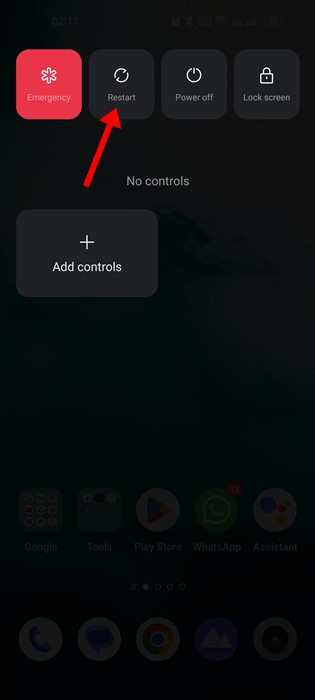
The very first step includes restarting your Android smartphone. Restarting the Android will immediately fix the ‘System UI Not Responding’ error, but it’s a temporary solution.
So, if you just want to use your Android smartphone and don’t have time to resolve the issue permanently, the best you can do is restart the device.
Restarting will make your System UI app responsive again, and if the UI isn’t responding due to a glitch, you won’t face the problem anymore.
2. Clear the Cache of the System UI App
System UI is a system app hidden from the user; when the cache file of the app becomes outdated, it becomes unresponsive and shows you the ‘System UI has stopped working’ error message.
So, you can try clearing the System UI app cache to fix the error message. Here’s what you need to do.
1. Open the Android app drawer and tap on the Apps.
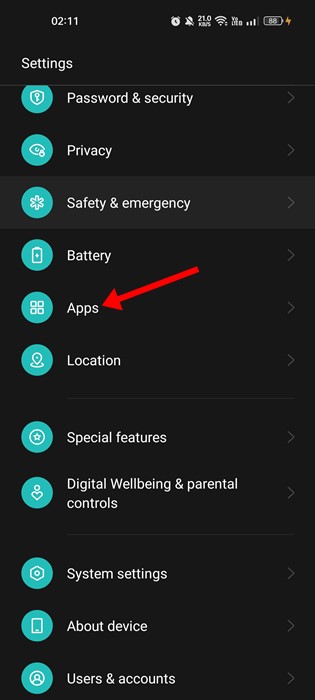
2. On the App, select All Apps or App Management.
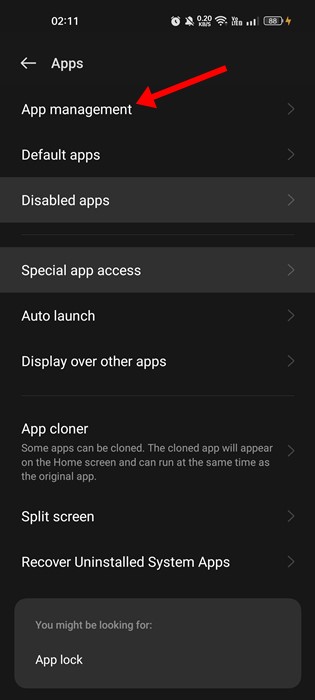
3. On the next screen, tap the three dots in the top-right corner and select ‘Show System‘.
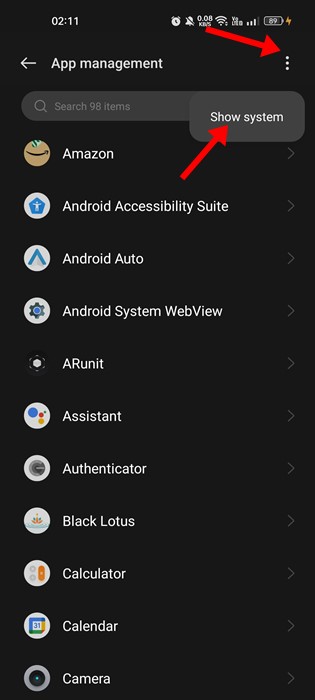
4. Now, find the System UI app and tap on it. Next, tap on Storage Usage.
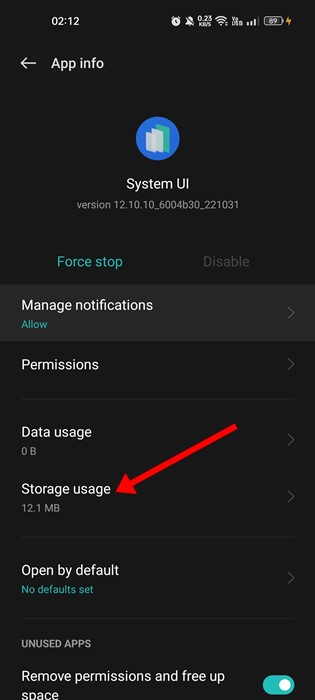
5. On the Storage Usage screen, tap the Clear Cache option.
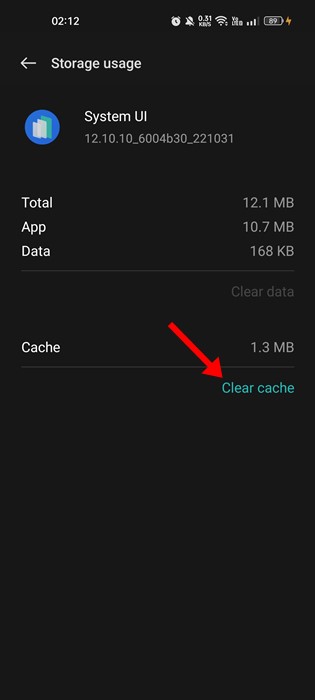
That’s it! This is how you can fix the System UI Not Responding error message on your Android smartphone.
3. Clear Google Play Services Cache
Many users have claimed to fix the System UI error message by clearing the Google Play Services Cache. Hence, you can do it as well. Here’s how to clear the Google Play Services Cache on Android.
1. Open the Android app drawer and tap on the Apps.

2. On the App, select All Apps or App Management.

3. On the next screen, find the Google Play Services app and tap on it.
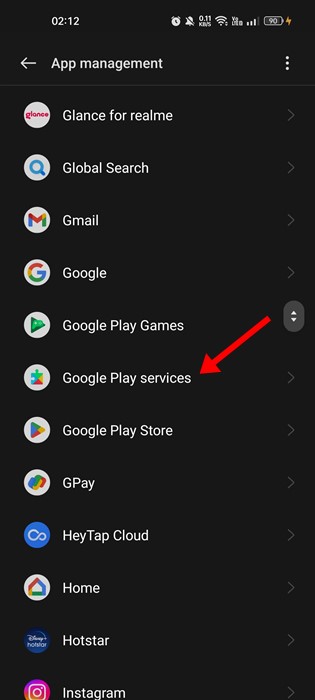
4. On the Google Play Services App info screen, tap on Storage Usage.
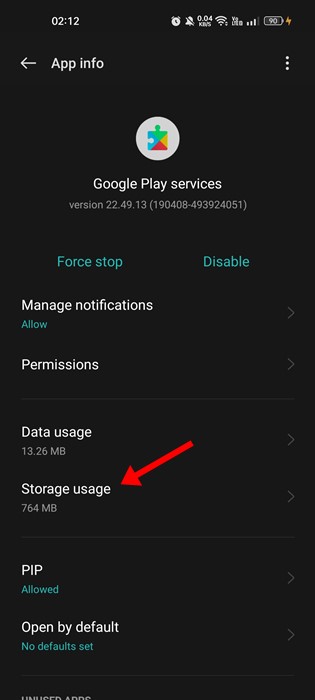
5. Next, tap on the Clear Cache option.
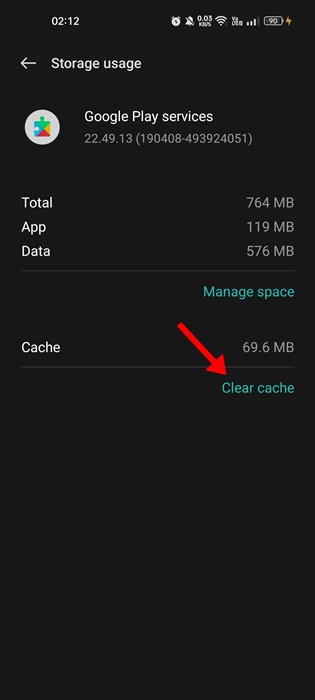
That’s it! This is how you can clear the Google Play Services cache to resolve Android’s System UI Not Responding error.
4. Update All Apps from the Google Play Store
Sometimes, bugs in outdated apps trigger the System UI error message. So, if outdated apps are the reason for the System UI Not Responding error, you need to get all your apps updated from the Google Play Store.
1. Open the Google Play Store and tap on your profile picture.
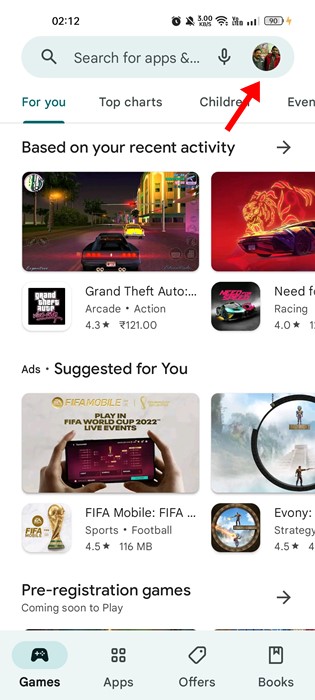
2. On the prompt that appears, tap on Manage Apps and Devices.
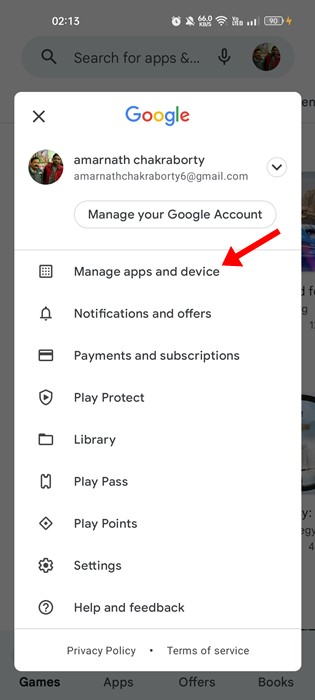
3. On the Manage apps and device, tap the Update All option.
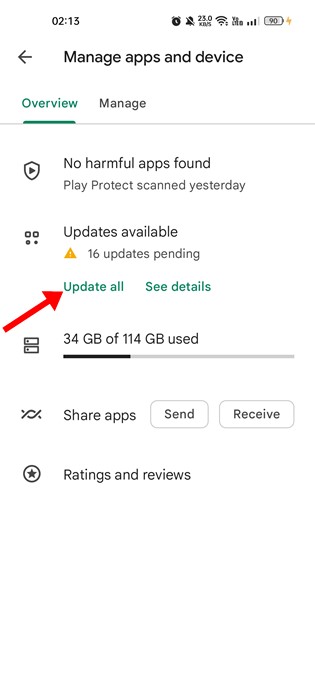
That’s it! This will update all your Android apps. Ensure you are internet-connected while Google Play Store updates all your Android apps.
5. Uninstall the Third-Party Apps
As we all know, incompatible or malicious apps can prevent the System UI Services from functioning properly.
When malicious apps conflict with the system UI services, it can trigger an error message. So, you need to recall all third-party apps you’ve installed.
If you can’t recall the apps, open the App Drawer and check all the apps you already have. Simply uninstall the apps that you no longer use or are suspicious of.
6. Run a Full Virus Scan
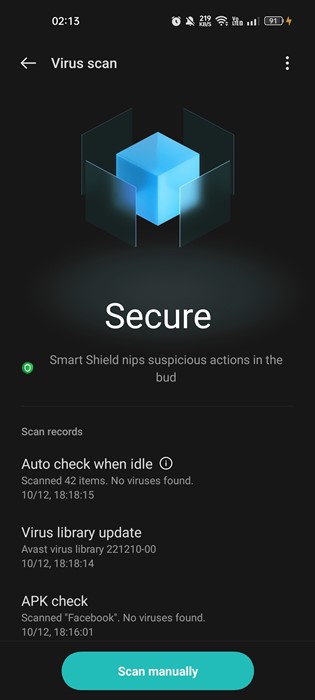
Viruses and malware are other prominent reasons behind the ‘System UI Not Responding’ error message.
Sometimes malware resides on your device and consumes the RAM resources. So, it could be malware raising the Memory usage and making the system UI unresponsive.
Since it’s difficult to detect malware, you must use a third-party antivirus app on your smartphone. For a list of security apps for Android, check our guide – Best Android Security Apps You Must Have.
7. Update Your Android Version
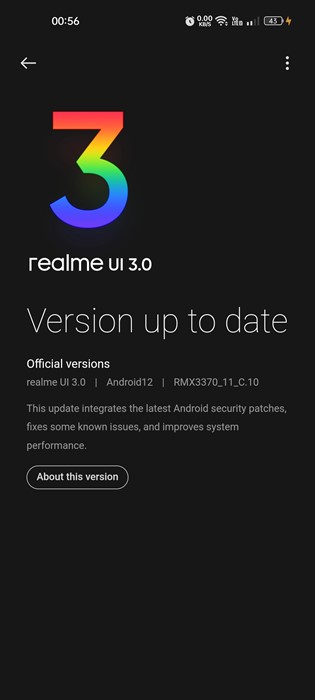
If your Android System files have been corrupted, you cannot resolve it. The only thing you can do is update your Android version.
Updating the Android version will also rule out OS bugs. So, connect your phone to the internet and check for all available updates.
You can check Android updates by navigating to Settings > About Device > System Updates. On the System Updates, download and install if there are any pending updates.
8. Reset Your Device
If everything fails to fix the ‘System UI Not Responding’ error message on your Android, you have no option other than resetting the device.
However, resetting the device will erase all installed apps, settings, and saved data. So, make sure to back up all your important files before you reset your device. To reset your Android, follow the steps shared below.
1. First of all, open the Settings app on your Android.
2. On Settings, scroll down and tap on System Settings.
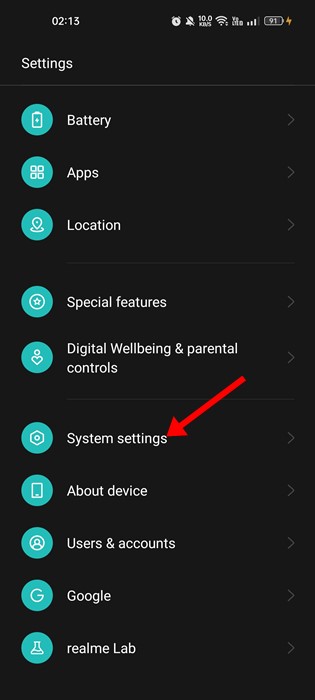
3. Next, scroll down to the bottom, tap on the Back up and reset.
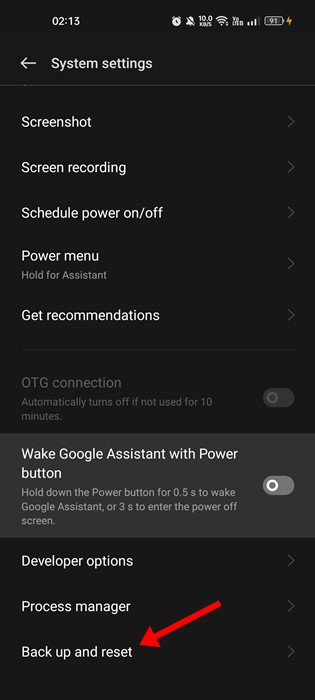
4. On the Back up and reset screen, tap the Reset Phone.
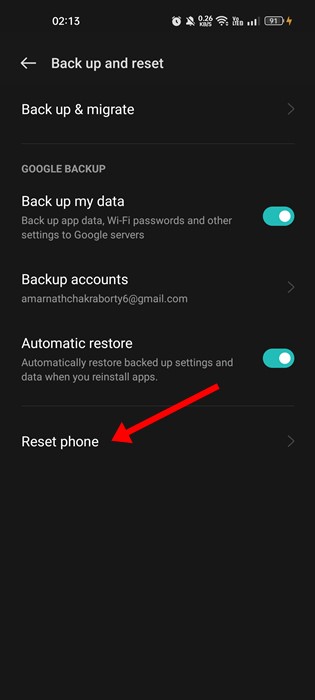
5. On the next screen, tap on Reset all settings.
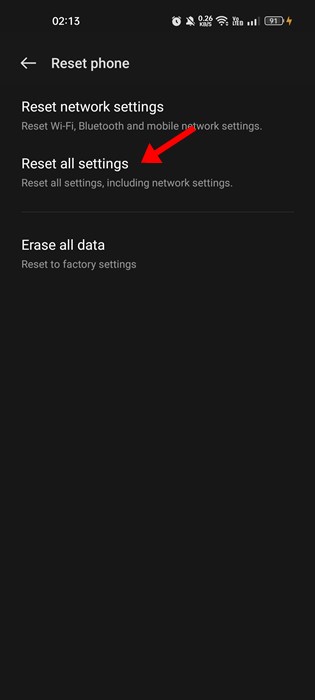
That’s it! This is how you can reset your Android device.
9. Wipe Cache Partition
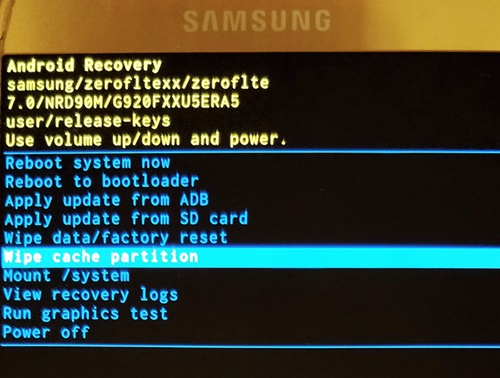
We have listed this solution toward the end because it’s a little bit complicated. You can wipe the cache partition of your Android if every method has failed to fix the problem for you.
You must boot into Android’s recovery and then wipe the cache partition. Since the recovery screen has no graphical user interface, selecting the wrong option and damaging the device is risky.
So, ensure you’ve followed all the methods we have shared above; if the issue isn’t fixed, follow these steps to clear the cache from recovery.
- Power off your phone and load into the bootloader screen using the key combination (Power button + Volume Down button simultaneously).
- On the bootloader screen, use the volume keys to select Recovery.
- Now press the Power key to select Recovery.
- On the Recovery screen, select Wipe Cache partition.
That’s it! Now, wait until the cache gets cleared. This will wipe the cache partition on your Android.
10. Look for Hardware Issues
System UI Not Responding error is not usually linked with hardware issues, but if the issue is still not fixed, even after wiping the cache partition, it’s time to look for hardware issues.
A fault in a hardware component can trigger System UI related issues on your Android smartphone. The best you can do is to take your phone to the local service center and ask them to resolve the issue.
Also read: How To Run Android Apps On Mac OS
System UI Not Responding could be irritating, but it’s becoming a common error every Android user deals with. You can follow these methods to easily fix the System UI Not Responding error on your Android. If you need more help resolving the System UI error on Android, let us know in the comments below.
[ad_2]
Source link
